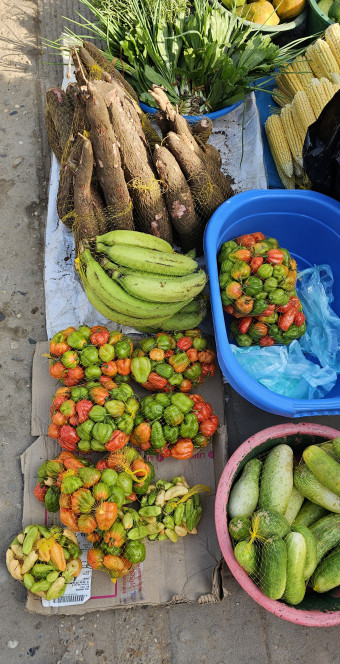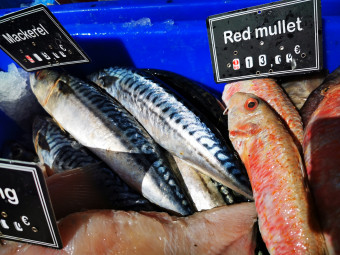Biodiversity is vital to the food security of billions of people worldwide. Diversity in food systems (of species, genes and ecosystems) helps to sustain healthy environments and facilitates the natural processes of adaptation to changes in ecosystem conditions and environmental stresses. Diversity provides the basis for modern breeding systems which are important for enhancing traits such as resistance to pests and disease. Genetic diversity in foods and wild food relatives represents an essential resource, from which new varieties can be bred and developed. Maintenance of diversity also increases crop stability and improves the resilience of food species to environmental perturbations such as drought or flooding. Food production systems that conserve and encourage wild biodiversity can give higher yields, and support cultivars and wild foods which are naturally more resistant to climatic extremes and diseases than strict monocultures in intensively farmed landscapes.
The entire variety of living things associated with food and agriculture, including the wild and domesticated plant and animal species used for food, and the other organisms, habitats and ecosystems which support food production, are collectively referred to as agricultural biodiversity. Utilising and enhancing agricultural biodiversity can have significant benefits for local economies and rural livelihoods, and promote security in food and nutritional resources. Agricultural biodiversity is likely to become increasingly important for food security as the effects of climate change become more pronounced and widespread. Climate change presents particular threats to food production systems and to animal and plant health, through impacts on weather patterns, soil quality, pollinators, the availability of clean water, and the distribution of pests and diseases. Enhancing the diversity of food crops (including genetic diversity within species), and ensuring the success of measures to conserve unmanaged agricultural biodiversity (for example, soil forming organisms, decomposers and pollinators) , can not only provide real economic and social benefits in the short term, but can also help the agricultural sector adapt to climate change and protect crop and livestock health in the longer term.
Diversity in diets is increasingly promoted as an important element of healthy lifestyles. Research has shown that dietary diversity is associated with lower health risks and protective effects against a wide range of non-communicable diseases such as obesity, cardio-vascular disorders, diabetes, ocular disease and certain cancers. The problem of nutrition security as opposed to food security is an increasingly important issue, and one which particularly affects people on low-income. Access to cheap processed foods promotes poor quality diets, high in simple carbohydrates and saturated fats, and low in nutritional value. The impacts of low dietary nutrition in children include poor concentration in school, restricted intellectual development, and lower resistance to infection. Utilising and enhancing agricultural diversity can therefore play an important role in addressing livelihood security, improving education outcomes, and addressing a wide spectrum of diseases.
Today, hunger and malnutrition are a harsh reality for more than 800 million people worldwide. It is estimated that 15 percent of the world's people either do not have enough food, or enough healthy food, to meet their basic nutritional needs and to lead a healthy and productive life.


